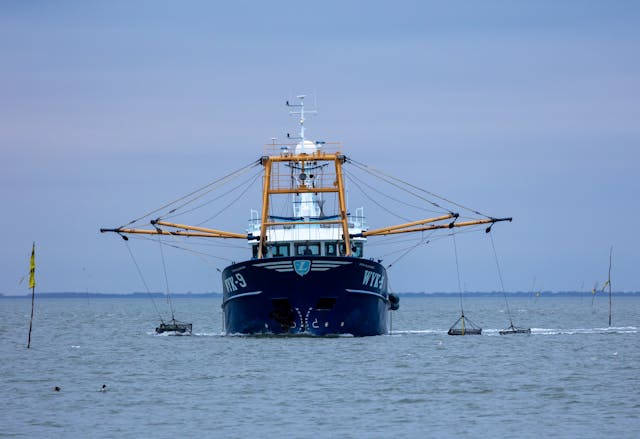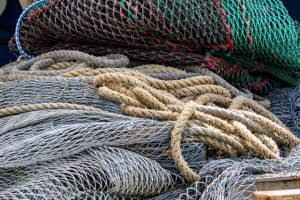Trawling – the act itself involves large nets, around 20m wide, being dragged along the seafloor and scraping up everything in their path. A common practice for catching species like white fish and flatfish. The problem lies in the bycatch of the net, the unintended accidental species of industrial-scale fishing. This could be coral, crustaceans and other helpless fish. Alongside the actual physical damaging caused from scraping the seabed, accidentally caught sea life is often discarded.
Trawling doesn’t just kill what it catches. It rips up the seafloor, crushes habitats and unleashes carbon stores buried in the sediment. That carbon doesn’t vanish, it fuels ocean acidification, making life harder for species that build shells or rely on chemical balance. If we look at a trawled site just off the coast of New Zealand, 15 years after the initial trawling there is little to no recovery of the complex seabed community.
This is an ecological wreckage on repeat. The worst part? The damage sticks.
Mine Over Matter
As our hunger for tech grows, so does demand for rare minerals. when land deposits run out, we start digging into the deep sea. Rare minerals such as nickel, copper and cobalt are used in the production of phones, cars and other technology. These resources are finite and often remote.
In 1979, a small-scale mining experiment was carried out in the Clarion-Clipperton Zone, in a remote region of the Pacific Ocean. When nearly half a century later scientists returned to the site, they found the scars still there. Furrows in the seabed were clearly visible. The bottom dwelling communities had not returned to this area. The animals that depended on them, such as corals, sponges, and countless others, were still gone 44 years later.
Selective Protection
In 2025, the UK government proposed extending bans on bottom trawling across 41 Marine Protected Areas (MPAs), aiming to safeguard sensitive seabed habitats and species. A 12-week consultation has been run from June until 1 September seeking the views of the marine and fishing industry. While the proposal showed promise, the outcome highlights a troubling gap between conservation ambition and action. Looking ahead, the UK and the world must try harder to deliver real, enforceable protection for our ocean, not just protection on paper.
The Abyss Doesn’t Forget
We like to think of nature as resilient, but the deep sea plays by different rules. It operates on geological timescales, not human ones. When we trawl or mine these areas, we’re not just disturbing some of our oldest ecosystems. We’re erasing them.
This marine environment is extremely slow to recover from extensive trawling and mining. It is highly likely no full recovery will be made in our lifetime.


